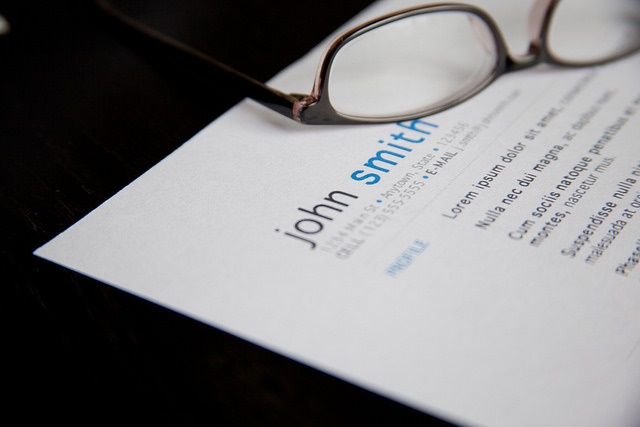How to Write a Resume
A resume is a very unique document. It has to introduce you to the hiring agent, tell them about your history and convince them to take the next step and call you in for an interview, and you have to do this in a very limited amount of space. Here are the steps you should follow the next time you have to write a resume.

Open Strong
When you write a resume, the opening statement of your resume is the most important part of the document. You should think of this as a really short “elevator pitch”. Tell them who you are and what you do, in a very brief, but powerful statement.
If your introduction doesn’t grab the attention of the person who is it, the rest of it can be fabulous, but it won’t matter because they will stop reading before they get to it.
This should be more than a job title because your current job title might not be what they are seeking. Use this space as a more general descriptor for your current job or ambition, and tailor it to the job you are applying for.
Focus on Your Accomplishments, Then Your History
This is a mistake many people when they write a resume. Most people want to talk about all of the responsibilities they had, but that isn’t what people are looking for. When you write a resume, focus on what you accomplished. Don’t tell them WHAT you did, tell them HOW WELL you did it, and include as many concrete examples as you can.
The chronology of a resume indicates that you have to list your most recent job experience first, and then work backwards. However, this doesn’t work well if the aspects of your job history that you want to highlight don’t align with your most recent job.
The way to handle this is to include a section titled “Accomplishment” to your resume, and place this after your opening section, but before your job history.
Keep it Readable
Another mistake that a lot of people make when they write a resume is to cram as much information as possible on the page. In order to do this, they reduce the margins and font size to get more words on the page. However, this is a mistake because it makes your resume very difficult to read. Your resume is your one chance to impress the person who is making the hiring decision. Do you want to make it difficult for them, or easy?
Get Help
It doesn’t matter how good you are at writing resumes, you should get help. This includes using a good online spell checker, as well as finding someone else to look at your resume.
Using a spell checker when you write a resume should be obvious. Most hiring agents will tell you that a simple typo is enough to get your resume tossed in the trash. It would not be good to spend hours and hours on a resume and then not take the time to spell check it to make sure it is typo-free.
The other type of help you need is to have someone else read your resume before you send it out. A good resume takes hours to write and refine and you will go over it dozens and dozens of times as you continue to edit and tweak it. When you do this, you frequently start to skim over parts and you stop being objective. When you write a resume, make sure to find someone you trust to look at it and provide constructive feedback.
